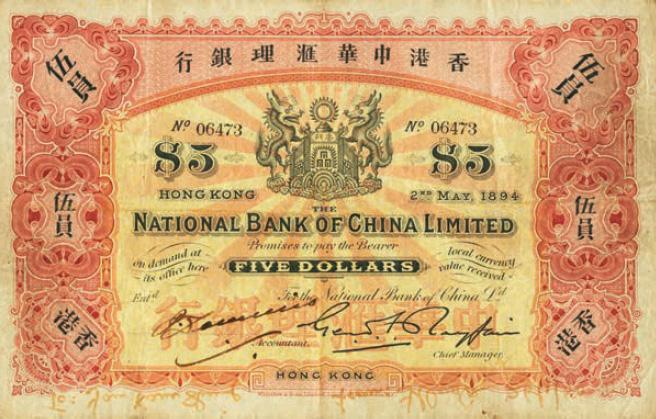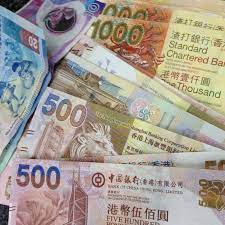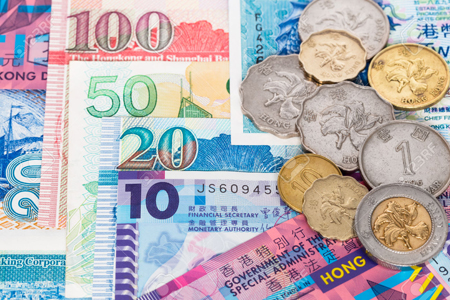Advantages and Disadvantages:
Both as a currency for Hong Kong residents and enterprises and as a currency for international trade and finance, the Hong Kong Dollar (HKD) offers a number of benefits and drawbacks. Here is a summary of some important things to think about:
The Hong Kong Dollar’s (HKD) benefits include:
Stability: The HKD is pegged to the U.S. Dollar at a set exchange rate (about 7.8 HKD to 1 USD) under the currency board system that governs its operation. For businesses and investors, this fixed exchange rate offers stability and certainty.
Global Financial hub: The HKD is widely used in international trade and finance, and Hong Kong is a significant global financial hub. It serves as the basis for a number of financial transactions, including those involving bonds, trade settlements, and foreign exchange.
Ease of Conversion: The USD’s fixed exchange rate makes currency conversion for both people and businesses simple, making it simple to manage investments and transactions on a global scale.
Currency Basket: The Hong Kong Monetary Authority (HKMA), which administers the exchange rate while the HKD is tied to the USD, keeps foreign currency reserves that include a variety of major currencies. This offers some steadiness and diversity.
Low Inflation: Hong Kong has historically experienced low inflation, which supports the preservation of the HKD’s purchasing power. The economy will be more stable if there is little inflation.
Accessibility: The HKD is widely used for everyday transactions in Hong Kong and is easily accessible through banks, currency exchange companies, and ATMs.
HKD’s (the Hong Kong Dollar) drawbacks include:
Limited Monetary Policy Autonomy: Hong Kong’s monetary policy is strongly correlated with that of the United States under the currency board system. There are restrictions on the HKMA’s ability to decide independently on monetary policy like interest rates.
Due to the HKD’s peg to the USD, Hong Kong’s economy may be susceptible to shocks to the American economy and changes in American policies. The economy of Hong Kong may be impacted by a sharp shift in interest rates or the value of the USD.
Speculative attacks: The pegged exchange rate may be under pressure during periods of currency speculation or financial market instability. The HKMA might have to employ foreign exchange reserves, which would diminish its resources, to protect the peg.
Limited Control Over Money Supply: Due to Hong Kong’s fixed exchange rate regime, a lot of the country’s money supply is influenced by outside variables. The HKMA’s ability to regulate the domestic money supply and interest rates is constrained because it must modify its foreign reserves in order to keep the peg.
Lack of Flexibility: Hong Kong may not be able to employ currency devaluation as a strategy to increase exports during recessions due to the fixed exchange rate.
Exposure to Global Economic changes: Because of Hong Kong’s strong export-oriented economy, changes in the global economy have a significant impact on the city’s fortunes.
In conclusion, the Hong Kong Dollar delivers predictability and stability, which makes it appropriate for international trade and finance. However, it also has drawbacks, particularly in terms of the independence of the monetary policy and vulnerability to outside economic influences.

Hong Kong currency role of society:
As the official currency of the area, the Hong Kong Dollar (HKD) has a substantial impact on Hong Kong society in a number of ways. In Hong Kong society, the HKD plays the following important roles:
The HKD is the main means of exchange for day-to-day business dealings between Hong Kong citizens. For everyday transactions like groceries, transit, food, and entertainment, people use coins and banknotes.
Hong Kong uses the HKD as its primary unit of account when determining prices for products and services. Prices for commodities, properties, and other assets are quoted in HKD, making it easier to conduct business and make financial plans.
Payment for Goods and Services: In addition to actual currency, electronic payment methods with HKD denominations, like credit cards, debit cards, and mobile payment apps, are frequently used for bill payment and purchase.
Financial Planning: When making financial plans, investments, and savings decisions, both people and businesses should consider the stability of the HKD’s value. It offers a trustworthy reference point for financial computations.
International Trade: The HKD is frequently used in international trade operations, and Hong Kong is a significant worldwide trading centre. Due to its stability and widespread acceptance, the HKD is preferred by many international businesses and dealers for trade payments.
Bank accounts, investment portfolios, real estate holdings, and retirement funds are just a few of the places where the HKD is utilized for savings and investments. It offers a reliable foundation for monetary expansion.
international Workers: A wide variety of expatriates and international workers are drawn to Hong Kong. Currency exchange services are crucial because although while many people receive their paychecks in HKD, they might also need to convert and transfer money to their home countries.
Travel: The HKD is frequently used by tourists to Hong Kong for a variety of expenses, including lodging, dining, shopping, and transportation.
Financial Services: The financial industry in Hong Kong makes a significant contribution to the regional economy. Financial services, including as banking, insurance, investing, and asset management, are largely conducted in HKD.
Real estate: Since real estate transactions in Hong Kong are carried out using the local currency, the HKD is essential to the market. Mortgage rates and property prices may be impacted by the HKD’s value.
In conclusion, the Hong Kong Dollar is vital to Hong Kong’s economy and society, making it easier to conduct daily business, prepare for the future financially, engage in international trade, and engage in other activities of daily life. Its stability and widespread acceptance help to explain why it plays such an important part in the region’s social and economic activities.




